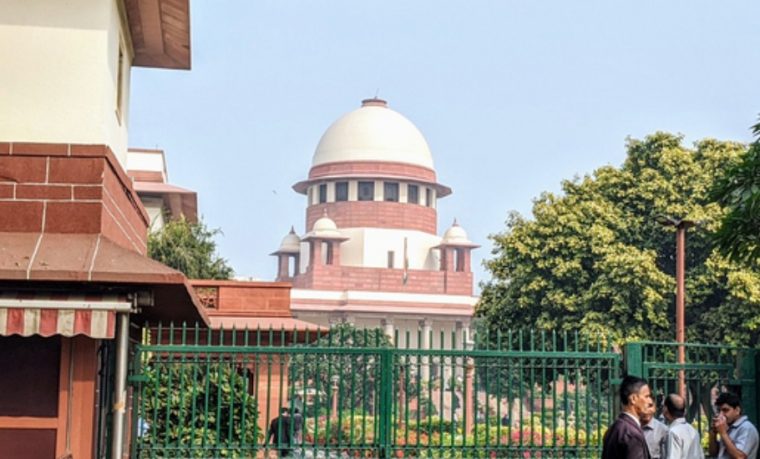
Section 66A of the IT Act is dead; punish the police who still use it
Law enforcement officials, and even magistrates, continue to use the defunct Section 66A of the IT Act in defiance of a Supreme Court ruling; they should be aptly punished

Article 141 of the Constitution says the ‘law’ declared by the Supreme Court shall be binding on all the courts within the territory of India.
Therefore, every judgment on important constitutional issues is a ‘law’ of the Supreme Court. If it is binding on all the courts in India, shouldn’t it mean it is binding on all of India? Can the police and the government claim that it is binding only on the courts and not on them?
Their actions are saying so. For example, more than 1,000 cases are booked in several states under Section 66A of the Information Technology Act, 2000, which was declared unconstitutional in 2015.
What Section 66A said
This provision made messages deemed by the police to be offensive or menacing to anyone, or those that caused “annoyance”, a criminal offence if these were sent through a computer or computer resource. It prescribed a prison term of up to three years on conviction. The Supreme Court held that the expressions used in Section 66A were open-ended, undefined and therefore arbitrary and violative of Article 19(1)(a).
The audacity of the police and the government machineries in states was revealed when the PUCL (People’s Union for Civil Liberties) told the Supreme Court that in the last six years, 1,307 cases were registered by the police after that judgment.
A section of the police believe that such penal section is needed to control offensive social media posts. They also cite certain incidents where the police became helpless because of the Supreme Court’s striking down of the Section.
Also read: What we have lost with the death of Stan Swamy
It was not for the first time this matter was brought to the notice of the Supreme Court. In January 2019, too, the court was requested to stop the misuse of this Section. There are complaints, and the police acted on them by registering cases under Section 66A, though it was invalidated.
Police action
The Supreme Court expressed surprise at that time, too. Nothing happened. Emboldened, police officers continued to use or abuse the struck down penal definition. The police headquarters and prosecutors in different states did not care about these “surprises”. They have not disseminated the invalidating effect of the court ruling among officers manning police stations.
What is more disconcerting is that the courts have framed charges under Section 66A even after the lawyers cited the Shreya Singhal judgment of 2015, point out that the Section is no longer on statute.
The PUCL, in its PIL (public interest litigation), told the court that as many as 745 cases are still pending in district courts in 11 states. Some people may not really know this invalidation and perhaps out of that ignorance filed a complaint.
However, we cannot say that police and prosecution offices also do not know. It is possible that they may not know, but their ignorance of law is no excuse. None can excuse them thus.
Also read: Dalit woman’s custodial death: Absence of CCTVs points to gross negligence
There is also the possibility that some police officers might have deliberately used it to harass people — like slapping false cases and enjoying sadistic pleasure as they suffer in jail till the courts discover the charge to be false. The persons arrested under Section 66A also have to suffer until the trial courts proclaim their innocence.
Breach of Article 141
What can be done if the magistrates themselves are ignorant of the law or do not care when lawyers bring the developments to their notice?
It is straight breach of Article 141 by the magistrates. When it is so specifically stated that invalidation of such a section is declared by the SC and that the law is applicable for all the courts, how can courts defy it?
The police and prosecutors who are perpetuating this abuse should be jailed for contempt of court. There should be a severe disciplinary action against the magistrates for framing charges under this Section, even if that implies dismissal from service. It will not be a punishment but preventing them from depriving some more persons of their rights.
If the PIL by the PUCL is pursued further the court may give directions to states and the police, as well as the court registries, for appropriate advisories to both station-house officers and magistrates.
Why should the Supreme Court do this job when there is nothing that it needs to pronounce about the constitutionality of any action? Why should it waste its valuable time? How many times should the apex court tell the states not to use Section 66A? Why not the executive act in accordance with the Constitution, and the law as laid down by the Supreme Court?
If the contempt of court law should remain in statute book, it should be only to punish such defiance of Supreme Court law by the government machinery. Forget punishing people who write against the judiciary, and penalise those who defy the just law declared by the apex court.
The writer is Dean & Professor, School of Law, Mahindra University, Hyderabad, and former Central Information Commissioner.
(The Federal seeks to present views and opinions from all sides of the spectrum. The information, ideas or opinions in the articles are of the author and do not reflect the views of The Federal)


